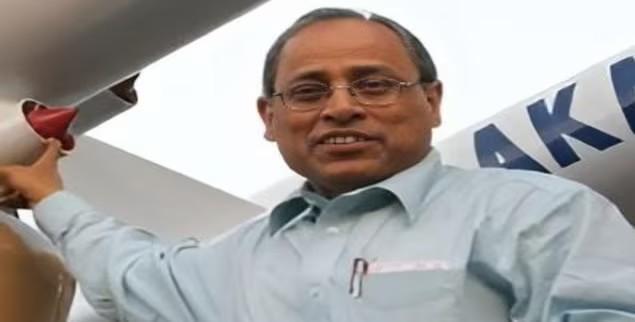
Title: I couldn’t speak: Scientist behind ‘Akashteer’ system on watching it protect India
Dr. Prahlada Ramarao, a former scientist at the Defence Research and Development Organisation (DRDO), recently shared an emotional account of watching the Akashteer system, a missile defence system developed under his leadership, protect India from Pakistani attacks along the Line of Control (LoC). In a poignant moment, Dr. Ramarao confessed that he couldn’t speak when he received news that his “baby” – the Akashteer system – had successfully defended the country.
The Akashteer system is a cutting-edge missile defence system designed to intercept and neutralize incoming threats from enemy missiles. Its development was a culmination of years of tireless efforts by Dr. Ramarao and his team at the DRDO. The system has been credited with playing a crucial role in repelling Pakistani attacks along the LoC, demonstrating its effectiveness in protecting Indian borders.
In an exclusive interview, Dr. Ramarao spoke about his journey of developing the Akashteer system, the emotional highs and lows he experienced during its development, and the pride he felt when he saw it successfully defend India. His account is a testament to the dedication and passion of scientists like him who work behind the scenes to ensure national security.
“It was a moment of great pride and overwhelming emotion,” Dr. Ramarao recalled. “I couldn’t speak when I heard that the Akashteer system had worked. My wife told me it had defended India, and the first person I remembered was Dr. A.P.J. Abdul Kalam, my former boss and mentor.” Dr. Kalam was a renowned scientist and former President of India who played a significant role in promoting scientific research and development in the country.
Dr. Ramarao’s journey with the Akashteer system began over a decade ago, when he was tasked with developing a missile defence system that could effectively counter the threat of enemy missiles. The project was challenging, to say the least, as it required developing a system that could detect, track, and intercept incoming missiles in real-time. Dr. Ramarao and his team worked tirelessly to overcome the technical hurdles, conducting extensive research and testing to ensure the system’s effectiveness.
Despite the challenges, Dr. Ramarao remained committed to the project, driven by his passion for scientific research and his desire to contribute to national security. He recalled the countless hours he spent in the lab, working alongside his team to overcome technical issues and perfect the system.
The Akashteer system’s success was not just a testament to Dr. Ramarao’s dedication and expertise but also to the hard work and perseverance of his team. The system’s development involved collaboration between experts from various disciplines, including aerodynamics, electronics, and computer science. Dr. Ramarao credited his team for their tireless efforts, saying, “It was a team effort, and I’m proud of each and every one of them.”
The Akashteer system’s success has significant implications for national security, as it provides an additional layer of protection against enemy attacks. The system’s effectiveness has also boosted India’s confidence in its ability to defend its borders, demonstrating the country’s capability to develop cutting-edge military technology.
Dr. Ramarao’s emotional account of watching the Akashteer system defend India serves as a reminder of the critical role that scientists and engineers play in ensuring national security. Their tireless efforts often go unnoticed, but their contributions are invaluable. Dr. Ramarao’s story is a testament to the power of passion, dedication, and teamwork in achieving greatness.
In conclusion, Dr. Prahlada Ramarao’s emotional account of watching the Akashteer system defend India is a poignant reminder of the importance of scientific research and development in national security. The Akashteer system’s success is a testament to the expertise and dedication of scientists like Dr. Ramarao, who work behind the scenes to ensure the safety and security of the nation.






